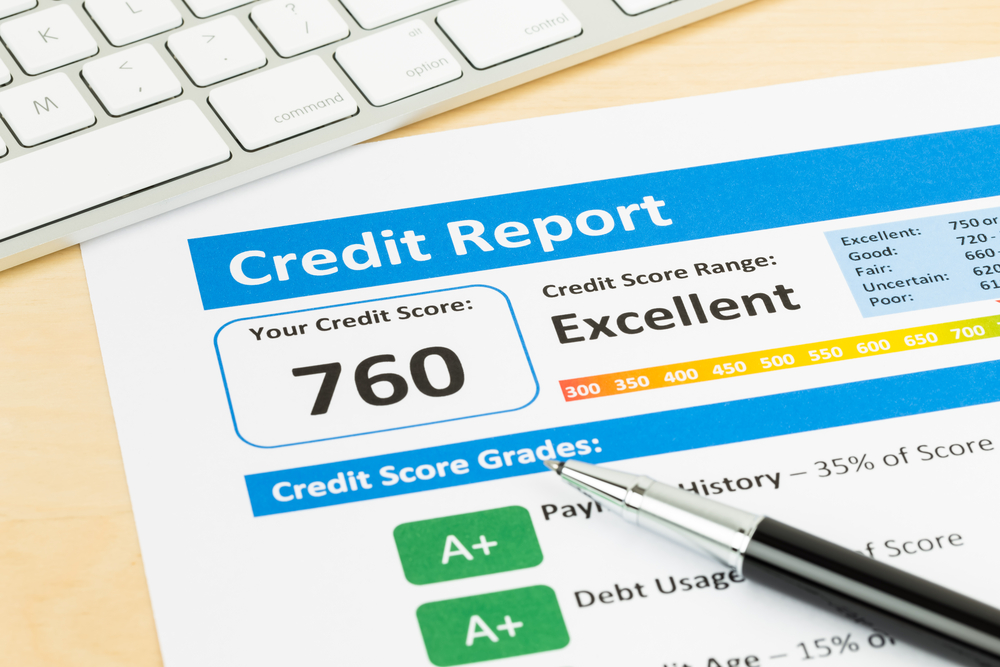
Do you know where you stand financially? Checking your credit is one of the most important steps you can take when it comes to understanding your financial situation. It’s essential to be aware of what’s on your credit report and how it affects everything from loan approvals to insurance rates. In this article, we’ll discuss why checking your credit regularly is so important.
Your credit score is a numerical representation of the information in your credit report, which includes things like payment history, loans and other types of debt. A good credit score can make all the difference when it comes to things like getting approved for a loan or even buying a car. A bad score, on the other hand, can lead to higher interest rates and fees when applying for loans or other types of financing. That’s why it’s so important to check your credit regularly.
Finally, checking your credit can help you spot any errors or fraud that may have occurred on your account. Identity theft is an all-too-common occurrence these days, and being proactive about checking your reports can help ensure that any fraudulent activity is caught quickly and dealt with appropriately. So if you want to protect yourself financially and stay ahead of any potential problems, make sure you check your credit regularly!
What Is Credit?
Credit is the trustworthiness and ability to repay borrowed money. Lenders use the record of a person’s borrowing and repayment history to decide whether they’ll give you a loan or credit card. Your credit score is based on this record, and it’s used to determine your interest rate, how much you’re eligible to borrow, and what type of loan or credit card you can get.
Your credit score is determined by a variety of factors, including how often you make payments on time, how many different types of lines of credit you have open, how much outstanding debt you have, and any recent inquiries into your credit report. Paying bills on time, keeping balances low relative to available credit limits, avoiding excessive applications for new accounts, and monitoring your credit reports are all important steps in managing your credit responsibly.
Your financial well-being can be greatly affected by your credit score; it’s important for you to regularly check it in order to stay informed about what lenders may see when they review your application.
Reasons For Checking Your Credit
Now that you know what credit is, it’s important to understand why you need to check your credit. You should make it a habit to review your credit score periodically, as this will help you stay on top of any changes or discrepancies in your financial standing. It can also help you protect yourself from identity theft or other fraudulent activity.
One of the biggest reasons to check your credit score is to ensure that all of the information reported under your name is accurate and up-to-date. This includes things like personal information, payment history, open lines of credit and any outstanding debts. Any errors or inconsistencies on your report could hurt your score and lead to higher interest rates when you apply for loans or new accounts.
Checking your credit also allows you to see where areas of improvement may be needed. It can help identify potential red flags that lenders may consider when evaluating a loan or credit card application. Knowing what needs to be done ahead of time can give you the opportunity to take action and improve those areas before applying for new accounts. Additionally, keeping track of your progress over time will allow you see how far you’ve come and which areas still require attention.
By routinely checking your credit report, you can take control of your financial future and stay one step ahead of potential issues. It’s important to not only keep track of the changes happening in your scores but also in the information associated with them – so that nothing goes unnoticed and everything stays up-to-date with accuracy.
Benefits Of Monitoring Your Credit
The benefits of monitoring your credit are numerous. Not only does it allow you to stay up to date on any changes in your credit score, but it also enables you to spot any suspicious activity or fraud that may have occurred. Additionally, it can help you make more informed decisions when applying for new lines of credit or loans.
By regularly assessing your credit report, you may be able to identify and correct any errors or omissions that could negatively affect your score. It’s also a great way to ensure that the information being reported is accurate and up-to-date. Furthermore, if there’s a problem on your report, such as an unpaid bill or overdue loan payment, you can take steps to resolve the issue and improve your score over time.
Monitoring your credit is essential to managing financial health and maintaining a good credit history. Keeping tabs on this important aspect of personal finance will enable you to get ahead financially and make better financial choices for yourself and your family.
How To Check Your Credit
Knowing your credit score is important. Fortunately, it’s easy to check your credit. There are three main ways to do this: by using a free annual credit report, signing up for a subscription service, or ordering a one-time credit report.
The most common way to check your credit is through an annual free credit report. This report can be requested through AnnualCreditReport.com and will show you the information on your credit report from all three of the major bureaus – Experian, TransUnion, and Equifax. It also includes basic information about any open accounts you have with creditors as well as any closed accounts that have been reported within the past ten years.
Subscription services such as Credit Karma and Credit Sesame are another option for monitoring your credit score regularly. These services provide consumers with access to their scores and reports from the major bureaus on an ongoing basis at no cost. Additionally, they give advice on how to improve your score and monitor any changes that may occur over time.
Finally, if you need additional information beyond what’s available in a free report or subscription service, you can order a one-time copy of your full credit report from each bureau separately. This will include more detailed information than what’s included in a standard free report and is useful if you’re applying for a loan or other large purchase that requires an extensive review of your financial history.
Potential Risks Of Ignoring Your Credit
Failing to check your credit regularly can lead to serious financial and legal risks. If you don’t know your credit score, you won’t be able to tell if any suspicious changes have occurred. These changes could be signs of identity theft or fraud, which can take a long time and lots of money to put right. Additionally, if you don’t know your credit score, lenders may not approve loans or other credit products for you as they don’t have the information they need to determine your eligibility.
Another problem with not monitoring your credit is that incorrect information may go unnoticed. This means that negative items like late payments or defaults could remain on your report without being challenged. Inaccurate entries can damage your score and make it difficult to access loan products or apply for new lines of credit.
Overall, it’s important to stay up-to-date with all aspects of your credit profile so that you can identify any issues quickly and take action as soon as possible. Doing so will ensure that you are in control of your financial future and able to access the best loan deals available when the time comes.
Conclusion
In conclusion, taking the time to check your credit is essential in today’s world. Knowing where you stand financially can be empowering and help you make informed decisions that will benefit you in the long run. Taking a few minutes to review your credit report can save you a lot of trouble, so it’s worth it to take a look and see what’s going on.
If you don’t pay attention to your credit, there are risks of missing out on opportunities or even having to pay more than necessary due to poor credit. Ignoring your credit could also mean not realizing there is incorrect information being reported, which could lead to serious problems down the road. So being vigilant about checking my credit regularly is important for me and my financial future.
Overall, monitoring your credit is something everyone should do if they want to have a successful financial life. Checking your credit report can give you peace of mind knowing that everything is accurate and up-to-date, so I recommend taking some time out of your day every once in a while to review it and make sure everything looks good.







